Hiding in the back alleys and behind a hoodie, he stencils freehand Gorillas in Pink Masks. An international art sensation makes a film about making a film about a guy who wants to become an international art sensation. The pseudonymous street artist Banksy has turned his well-marketed cultural irreverence into a boom time in the discontent industry.
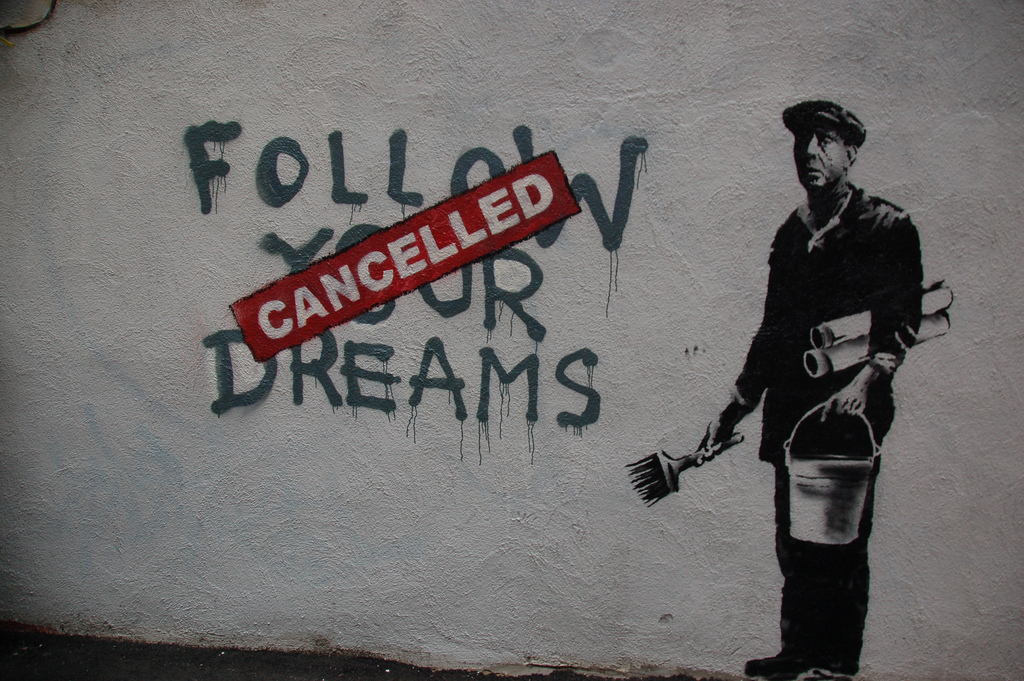

Banksy’s satirical outlaw graffiti spraying, or as he calls it “bombing,” began in Bristol, England during the underground aerosol craze of the late 1980s and 90s, morphing into an artist whose work commands hundreds of thousands of dollars in international auction houses. He has bombed cities from Vienna to San Francisco, Barcelona to Paris and Detroit.
“Nothing in the world is more common than unsuccessful people with talent, leave the house before you find something worth staying in for. ”
– Banksy
When he was 18, working in the Barton Hill district of Bristol, he once wrote he was painting a train with a gang of mates when the British Transport Police showed up and everyone ran. “The rest of my mates made it to the car,” Banksy recalled, “and disappeared, so I spent over an hour hidden under a dumper truck with engine oil leaking all over me. As I lay there listening to the cops on the tracks, I realized I had to cut my painting time in half.” Thus was born his distinctive stencil style, noticed staring up at a stenciled plate on the train fuel tank. One might also credit his style to Blek le Rat, Jef Aerosol, and the anarcho-punk band Crass.
STORY: Diane Arbus: A Privileged Voyeur of Life on the Margins
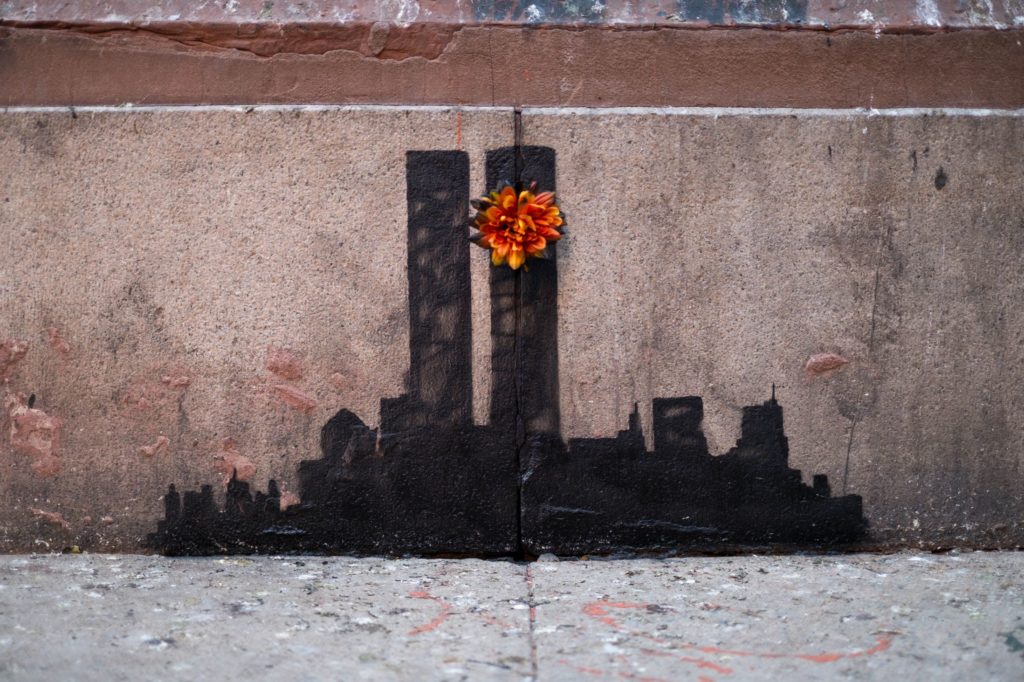

He told his friend, author and graphic designer Tristan Manco, “As soon as I cut my first stencil, I could feel the power there. I also like the political edge. All graffiti is low-level dissent, but stencils have an extra history. They’ve been used to start revolutions and to stop wars.”
“Some people become cops because they want to make the world a better place. Some people become vandals because they want to make the world a better looking place.”
– Banksy (Wall and Piece)
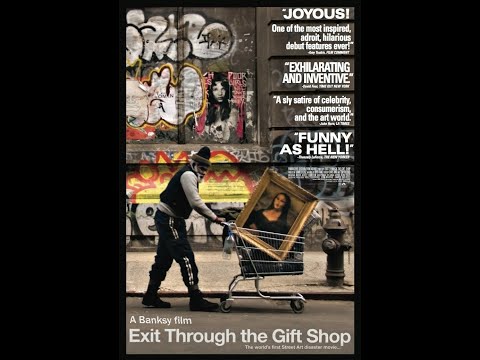
Watch this video on YouTube
The “documentary” Exit Through the Gift Shop, Directed By Banksy, 2010
Banksy is a graffiti artist with a global reputation whose work can be seen on walls from post-hurricane New Orleans to the separation barrier on the Palestinian West Bank. He fiercely guards his anonymity to avoid prosecution. An eccentric French shop keeper turned documentary maker attempts to locate and befriend Banksy, only to have the artist turn the camera back on its owner. Includes footage of Banksy, Shepard Fairey, Invader and many of the world’s most infamous graffiti artists at work, on walls and in interview. As Banksy describes it, “It’s basically the story of how one man set out to film the un-filmable. And failed.” — Paranoid Pictures
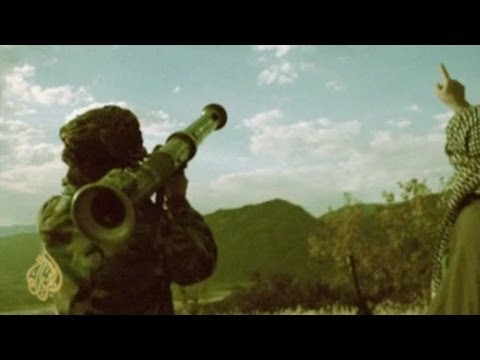
Watch this video on YouTube
Rebel Rocket Attack By Banksy
“I don’t know why so many people have been fooled into thinking this film is fake,” Banksy, or someone purporting to be him, wrote in an e-mail message from Los Angeles, where Exit Through the Gift Shop had a premiere in 2010. “It’s a true story from real footage. Does it bother me people don’t believe it? I could never have written a script this funny.” — New York Times
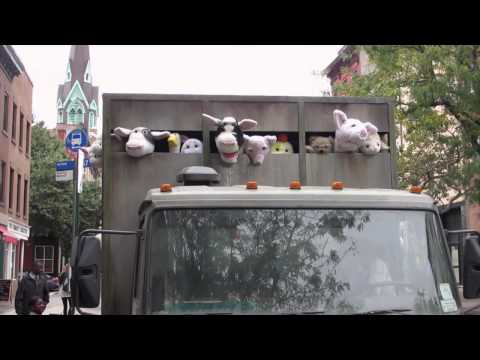
Watch this video on YouTube
Sirens of the Lambs By Banksy
“Perhaps the point of Banksy’s art is that it inhales the wild spirit of forgery: his work makes free with brand identities and the symbols of authority, it replicates them, debunks and devalues them, it is a form of benign subversion. And he could be an important artist or just a silly fad.” — Peter Bradshaw in The Guardian UK
Sources
Ellsworth-Jones, Will. “The Story Behind Banksy.” Smithsonian. February, 2013.
La Piccirella, Christina, “Artist Analysis: Banksy.” Our House is Our World. February, 2014.
Banksy on the Streets of New York, PBS Newshour, October 2013.
Great Banksy Quotes and Photos. Street Art Utopia.
Updated 2 February 2020



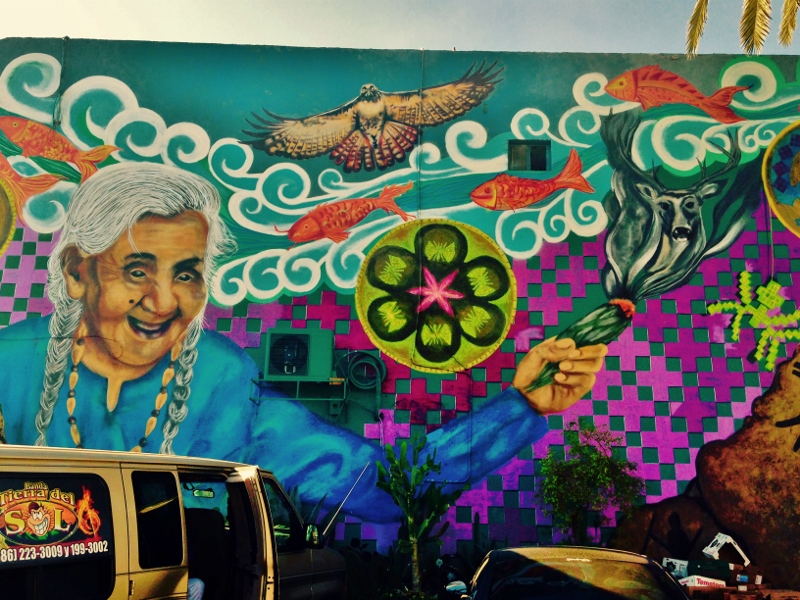





Pingback: Rio's Favela Pacification: Militarized Gentrification? | WilderUtopia.com
Pingback: Jean-Michel Basquiat: Poverty and Power, Scrawled on Walls | WilderUtopia.com
Pingback: Stencil Graffiti Manco - The Graffiti